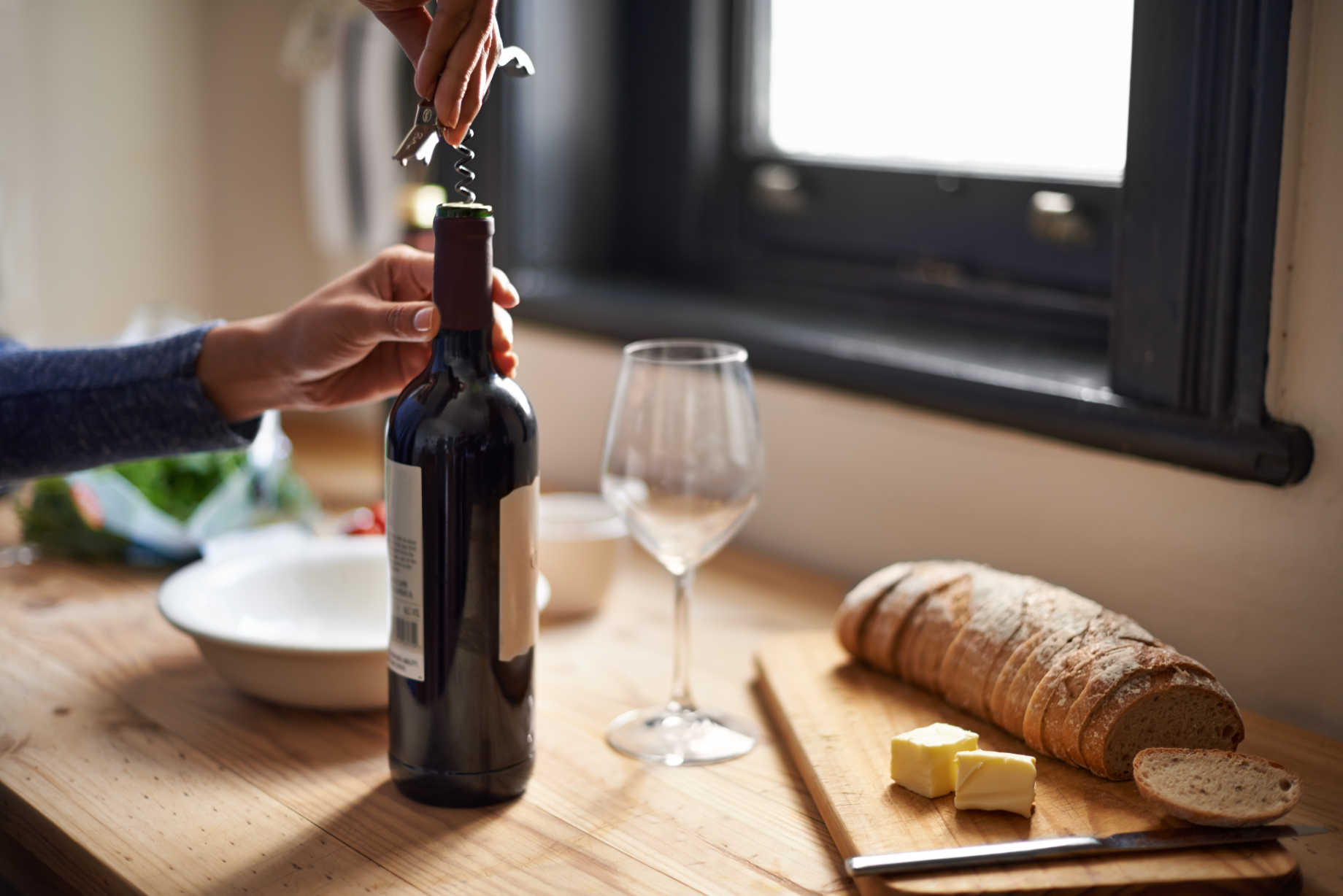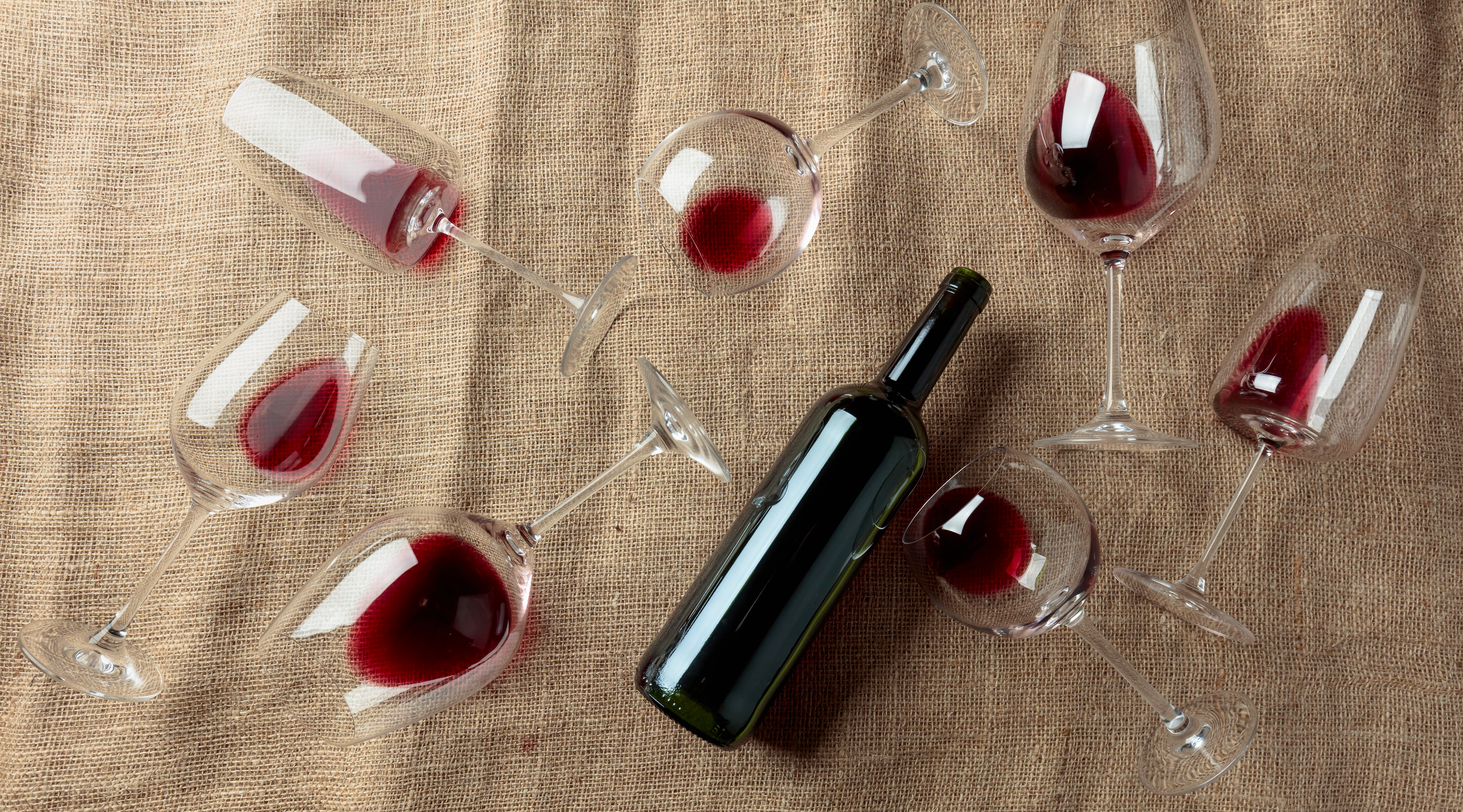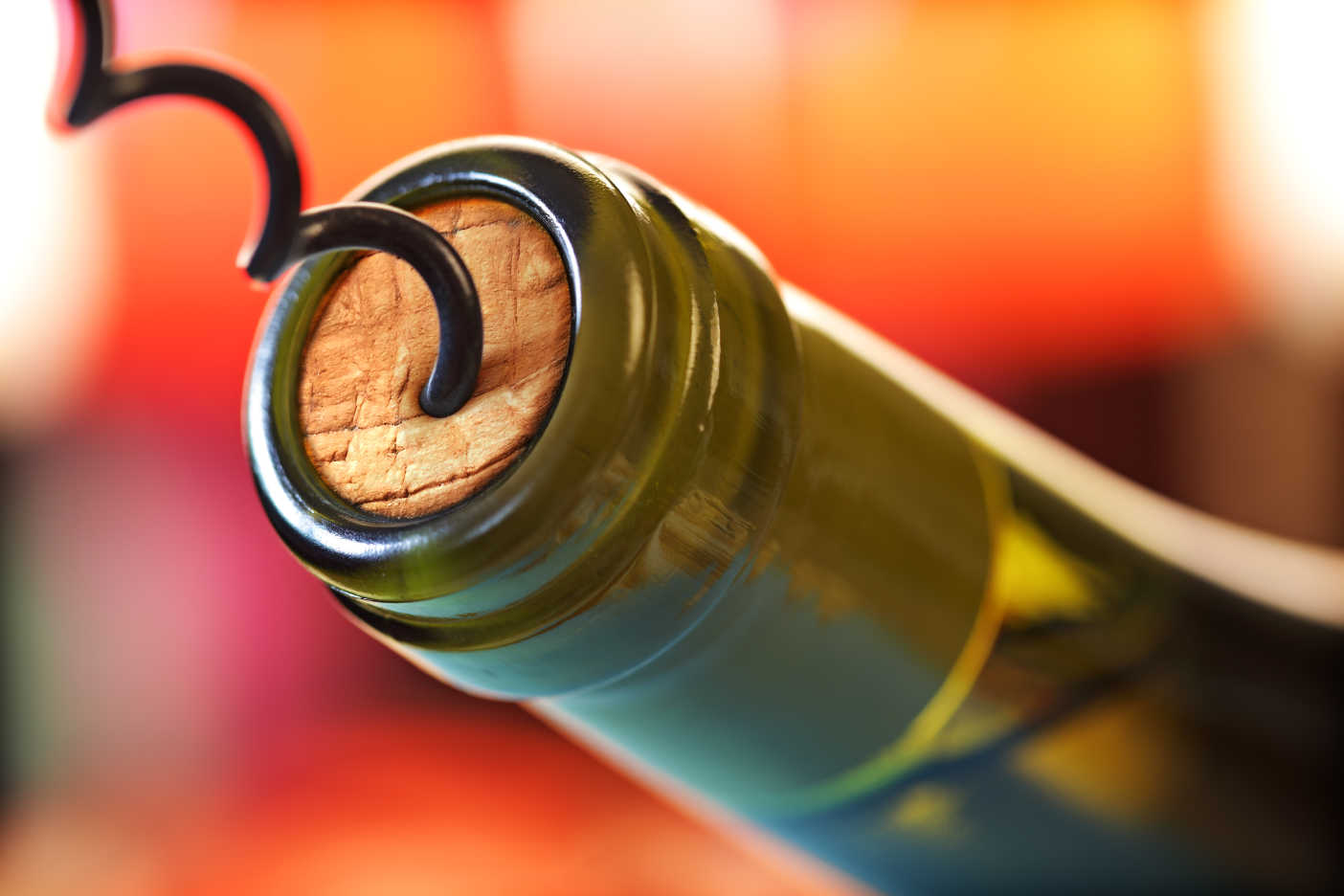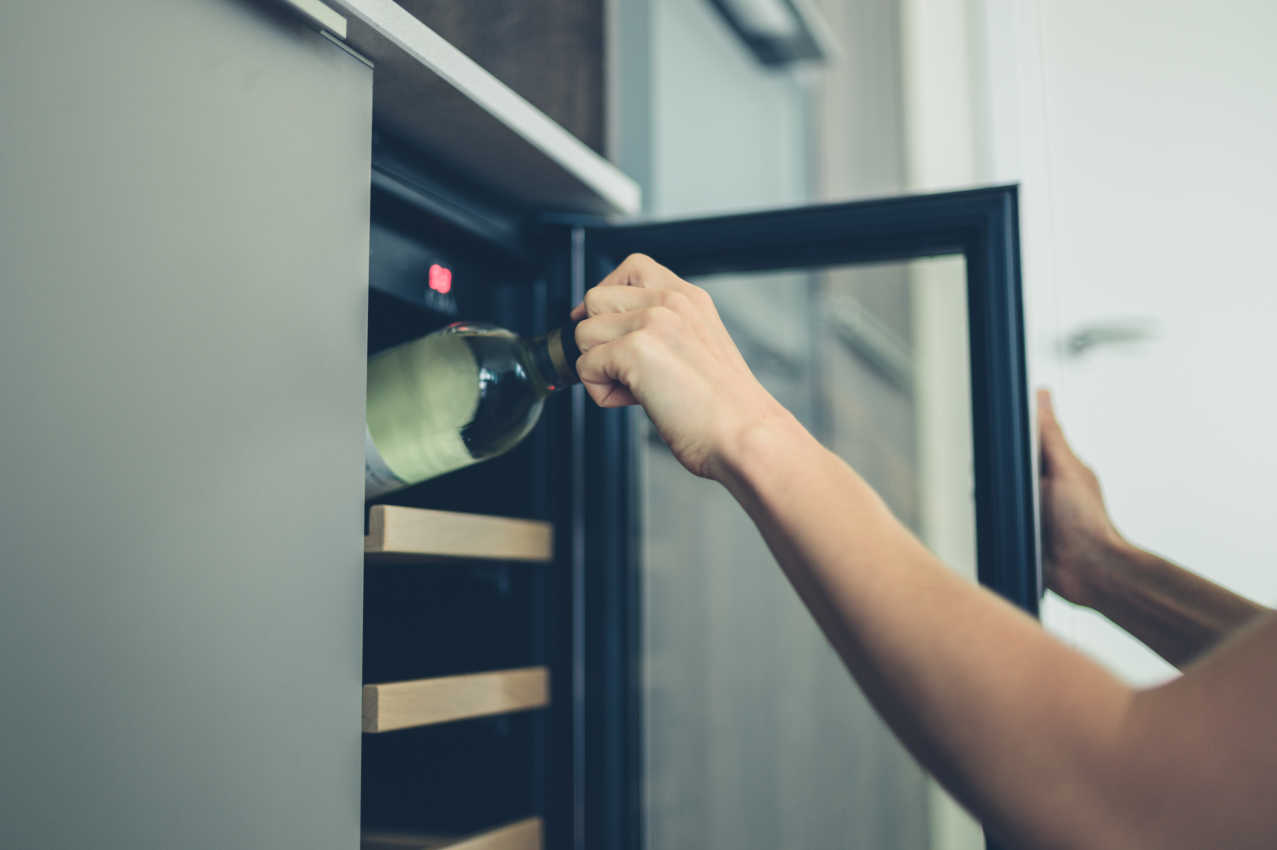Does wine go bad after it's been opened?
Just like any other drink, wine has an expiration date.
Are you are someone who lets a half-empty wine bottle sit out for days? Just don't plan on drinking it. Whether you are drinking a Cabernet, a dessert wine, or Sherry, all wine undergoes change when exposed to oxygen. While an unopened bottle of wine stored on a wine rack at cellar temperatures may age well and get better over time, the same is not true for an open bottle of wine sitting at room temperature.
Just like any other drink, wine has an expiration date. The shelf life of an opened bottle of wine is a few days maximum, but the ideal drinking window is shorter. Once a wine bottle has been opened, it will begin to spoil, turning vinegary and gross. Old bottles of wine spoil much more quickly, and some only have minutes of life left upon opening.
Oxidation may leave the wine a bitter, unpleasant metallic flavor profile. The wine may look brown and have a metallic smell. Oxidized wine isn't dangerous to consume, but it may have an unpleasant taste.
There are a couple of ways to preserve wine to not go bad within a day. Depending on the wine you're drinking (and how you store it), an opened bottle may last between two and three days.
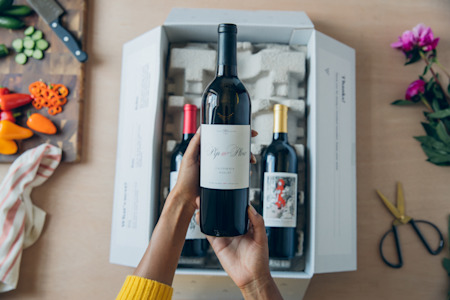
Take The Quiz
Learning about different wine varietals and regions is fun. Take the quiz now to explore wines matched to your unique palate.
Take The QuizIN THIS ARTICLE:
How long will an open bottle of wine last?
The amount of time that wine lasts depends on the type of wine. According to scientists, young table wines go bad faster, but fortified wines with high alcohol, acidity, and tannins can be good for a month or more.
White wine: White wine may oxidize quickly as some ingredients in their complex makeup are activated and may spoil quickly with direct oxygen contact. Drink young white wines within 2-3 days.
Rosé Wine: The soft hue and delicate flavors of Rose can last up to 2-3 days.
Red Wine: Pinot Noir and lighter red wines are more sensitive than bold, big reds, but either way, you should still drink them within 2-3 days.
Sparkling Wine: This may be the fastest to spoil among the types of wine as the carbonation flies aways pretty quickly right after you open the bottle. Sparkling wine can last 1-3 days; however, much of the effervescence will be gone after the first day. Old sparkling wine is an excellent candidate for cooking.
Faults that will affect your wine's shelf life
Before you even get to open a bottle, there are some faults that could affect the shelf life of your unopened wine.
Premature Oxidation: Some winemakers strive to add oxidative elements to their wine for added complexity during fermentation (looking at you, White Burgundy). But while that decision is based on style, occasionally, it happens accidentally. This chemical reaction results in chemical compounds losing electrons, causing the wine to spoil.
Cork Taint: When the aroma of the wine smells like wet cardboard or a wet dog, that's a red flag. This is what wine lovers are referring to when they call a wine "corked." Being corked has nothing to do with bits of cork floating in the wine.
Heat Damage: If the cork is slightly pushed out of the bottle, that bottle is most likely overheated and expanding. An unproperly corked wine will oxidize faster and pressure the bottle from within.
Checklist before drinking open wine
If you're not sure that your open wine bottle has gone bad, here are some things you can check before drinking it. You don't have to be a sommelier to understand whether a wine has gone bad or not. Old wine and new wine expire just like any other drink, so be sure to check them before drinking.
Smell: If the wine smell is usually berries, cherries, plums, citrus fruits, tree fruits (peaches, apples, pears), or melons, and all you smell is copper pennies, then your wine has oxidized.
Color: If the wine has waited a couple of days after being open and you see that it has taken a brown stain light color, then that wine is past its time. In white wine, the color darkens into an orangish-yellow color.
Flavor: You can always give it a taste, and if the flavor is metallic and chemical flavored, then it's time to throw out that wine.
A bottle of red, white, sparkling wine that's gone bad won't end up killing or harming you, but it probably won't taste very good!
Tips to make it last / Proper wine storage
Unfortunately, you can't prevent wine from going bad after it's been opened, but you certainly can stall the process to enjoy it for an extra couple of days. Oxygen is wine's worst enemy. So, here are some tips to help prevent wine from going bad too fast.
To prevent spoilage, find a dark place that's far away from sunlight with a steady, low temperature (like a refrigerator). This slows the deterioration process. When wine is stored far away from natural light, it prevents the build-up of heat inside the bottle.
Re-seal your bottle. You can do this with a wine stopper that will act as a vacuum seal to prevents oxygen from entering the wine.
If you lost your cork, then plastic wrap will work in a pinch.
The best way is to transfer the wine into a half-bottle. This smaller vessel will lessen the amount of oxygen the wine comes into contact with, thus slowing its oxidation.
If you've missed out on these steps, you can always let the wine turn to vinegar and use it for cooking.
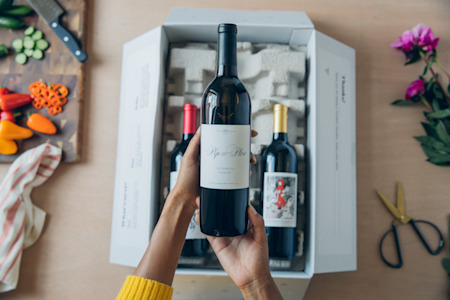
Take Our Quiz Today
Get award-winning delicious wines from all over the world shipped straight to your door. Take the quiz to get the perfect pairings for your holiday season.
Take The Quiz TodayIN THIS ARTICLE
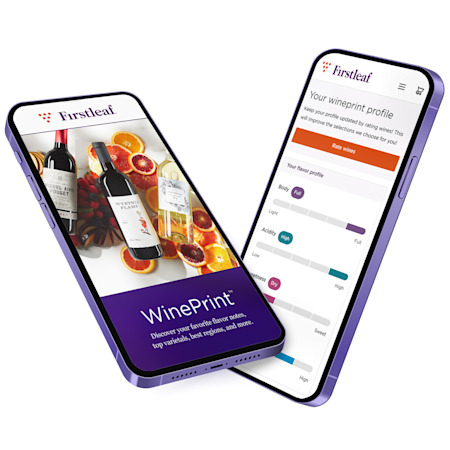
WinePrint™ by Firstleaf
Are you looking to learn more about your wine preferences? Check out our Wine Print for an in-depth look at your personal tasting profile. Discover your favorite wines, varietals, regions, and tasting notes and get personalized recommendations wherever you are.
Learn More